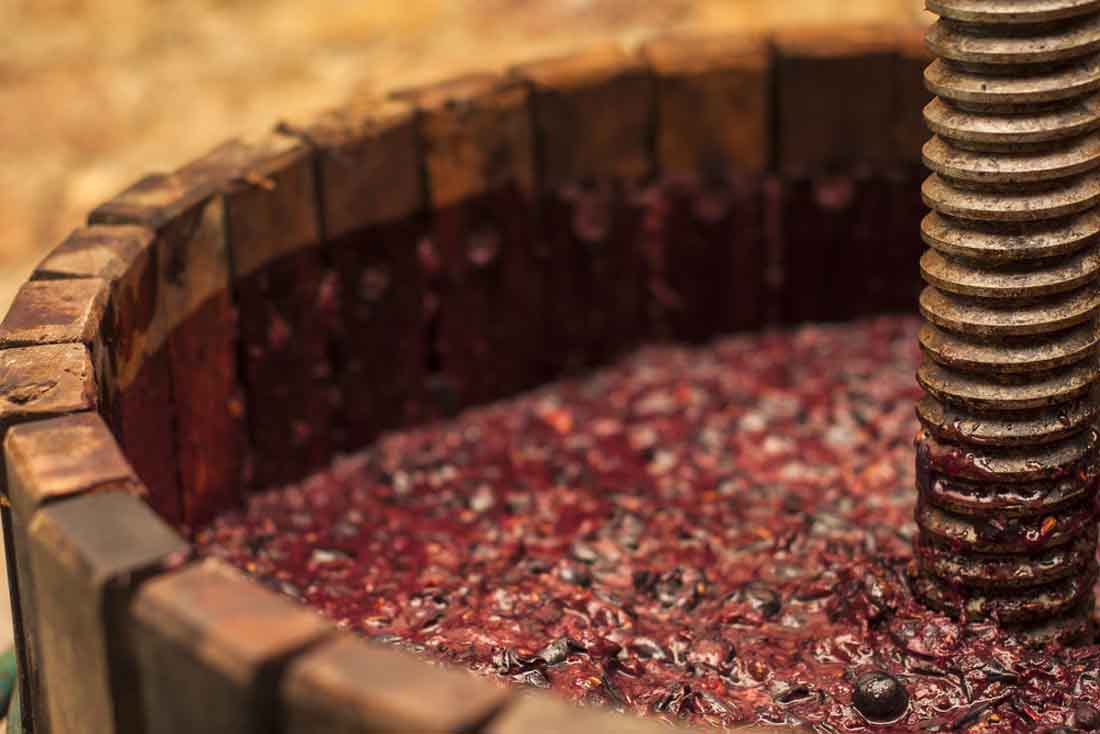
14 Feb Does Fermentation Impact Wines Flavours
In every winemaking process, the technique used for crushing and pressing grapes varies and releases several different compounds that have an impact on the final flavour of the wine. When crushed, the grapes break open, and the skin and stems are blended with the pulp and seeds. However, the seeds and stems have bitter components.
This is why it is crucial to de-stem the grapes before crushing or make sure the seeds are intact during the process. It prevents the wine from developing some of these bitter flavours.
While creating white wines, the grape juice is slowly pressed away from the seeds and skin. In red wines, the skin is left in the juice, and that’s what lends it colour.
Fermentation
Winemakers have two options when it comes to fermentation. The first option is to follow a process called spontaneous or ‘wild’ fermentation. This process allows the naturally present yeast in the grapes as well as the winery’s equipment to start fermentation. The second option is to add commercial yeast to the mixture, which is far more common as the rate of fermentation is quicker.
It also gives the producers more control over the style and quality of the wine. Saccharomyces cerevisiae is the most standard commercial yeast used for winemaking; it is also widely used in brewing and bread making. After the yeasts have been incorporated in the mix, they convert all the available sugars present in the juice to alcohol and carbon dioxide.
Roughly 12 core enzymes are involved in the process. Fermentation is the primary biochemical process where the sugars are converted into alcohol, and as a result, over hundreds of complex compounds are formed during this stage.
How Fermentation Lends Different Flavours to Wines
These complex compounds are responsible for the distinct variety of “notes” or flavours like pepper, spice, chocolate, bubble-gum, smoke, butter, and citrus, etc. mentioned on wine bottle labels. The flavours don’t necessarily mean that the bottle of wine contains those ingredients. Neither are these additions made nor permitted.
However, it means the wine shares the same molecules or molecular structure to the scents that we’re accustomed to, and which our brain and nose categorises as such. These different complex compounds can either come from the grapes, yeast, or the wooden barrels in which wines are aged.
For example, the ester that’s produced by yeast forms the fruity notes present in wine. Also, a compound known as diacetyl, which is a by-product of the microbial activity in winemaking, creates the buttery flavour commonly associated with Chardonnay wines. Monoterpenes are responsible for the floral notes in Riesling and Muscat. On the other hand, the violet aromas present in many Pinot Noir comes from the compound – norisoprenoids. Wines that have been aged in oak barrels often have a vanilla flavour. This is a result of the chemicals present in the wood being transferred to the wine.
Invest in a Custom Wine Cellar
It is crucial to store wines in customised cellars as they have the precise conditions that are essential for proper ageing and maintaining flavours, quality. Wines are incredibly delicate and exquisite, which makes it necessary to ensure that they’re stored and handled correctly. If you wish to experience and taste the wine in the right manner, you must store them in a customised, insulated wine cellar.
To find out about how Signature Cellars can help you design and build a wine storage solution that can help protect your investment and add value to your home, call us on 1300 570 636 or email info@signaturecellars.com.au, and we will respond within the shortest possible time.
Thanks for reading,
Neil Smallman
Signature Cellars
1300 570 636




No Comments